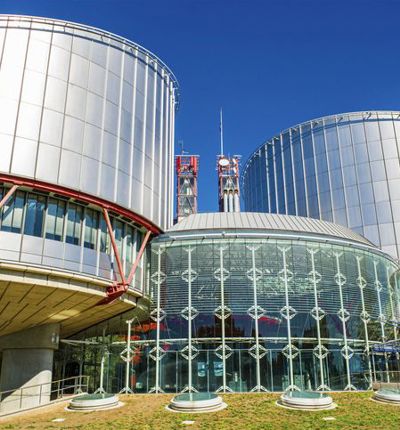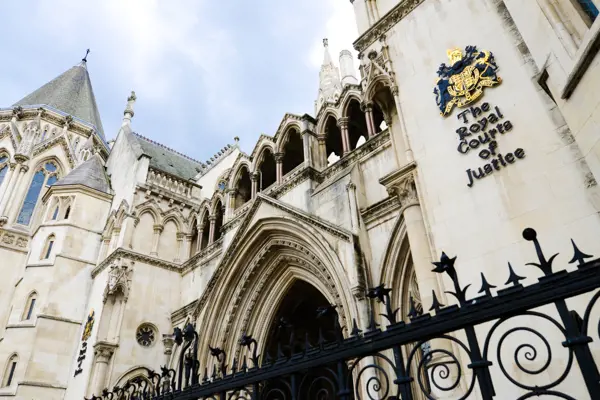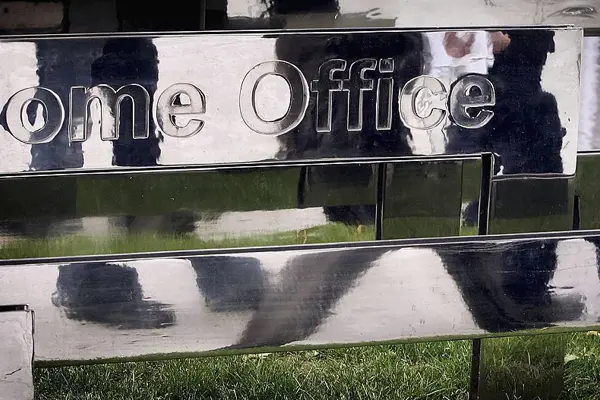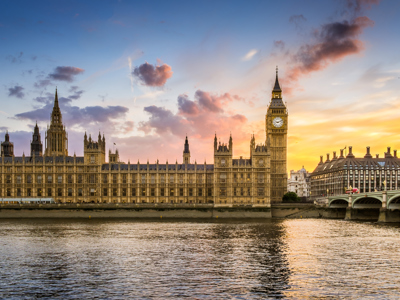
MPs’ landmark legal action against UK government over Russian interference proceeds in European Court of Human Rights
A landmark legal claim over the UK Government’s failure to call an independent investigation into Russian interference in UK democratic processes has been successful at the first hurdle at the European Court of Human Rights (ECtHR).
Posted on 19 January 2023
The Court has progressed to the next stage the claim by three MPs, supported by campaign group the Citizens, that the Government’s decision not to order an investigation was unlawful.
Now the UK Government has been ordered to respond to the legal claim by Ben Bradshaw MP, Caroline Lucas MP and Alyn Smith MP.
The ECtHR has written to the MPs confirming that the court has sent to the UK Government a list of questions going to the heart of the case. The Government is required to respond in detail by 26 April 2023.
In a sign of the significance of the case not just in the UK but also elsewhere in Europe, in its letter the ECtHR notes that it considers the MPs’ claim may be designated as an ‘impact’ case. “Impact cases” are those of particular importance because they deal with emerging of otherwise significant human rights issues or might lead to a change or clarification of legislation, or which touch upon significant moral or social issues.
The MPs applied to the ECtHR after a domestic claim was rejected by the High Court in London in late 2021.
In their High Court challenge – which was brought by the MPs along with Lord Strasburger, Baroness Wheatcroft and the Citizens – it was claimed that the UK Government acted unlawfully in 2019 when the then Prime Minister Boris Johnson decided not to arrange an independent investigation into the conclusions of the Intelligence and Security Committee in its reports ‘Disinformation and fake news’ and ‘Russia’. The Parliamentarians and the Citizens believe that the reports, together with the Government’s response, provide credible evidence of interference by Russia in the 2014 referendum on Scottish independence, the 2016 European Union membership referendum and the 2019 general election.
They say that the failure of the UK Government to investigate these credible allegations of interference in the UK electoral system or to have in place a legislative and policy framework that will identify and protect against interference in the UK electoral system, breaches positive obligations under Article 3 Protocol 1 of the European Convention on Human Rights, which secure the right to free and fair elections.
The High Court had rejected the claim on the basis that none of the applicants’ rights had been shown to be breached in any election or referendum. Further, according to the High Court the challenge to the legal framework was a matter of policy on which the court would not adjudicate.
Permission to appeal the ruling was refused: the judge did not consider it arguable that any legal obligation to investigate existed under Article 3 Protocol 1 and on the absence of a legal framework, he said a failure to legislate was not amenable to challenge by virtue of section 6 of the Human Rights Act 1998.
However, an application to the ECtHR was subsequently filed by the MPs, Lord Strasburger and Baroness Wheatcroft, arguing that Article 3 Protocol 1 has been breached by the UK Government through its failure to take action in response to the proven threat of Russian electoral interference.
The ECtHR has accepted the claim through the first stage of proceedings and now requires the UK Government to give a detailed response to the allegations.
It is anticipated that the MPs will file further representations following receipt of the UK Government’s response. It is not currently known when a final decision on the merits of the case is likely to be made by the ECtHR.
The three MPs welcome the initial response of the ECtHR. The ECtHR’s final ruling is likely to be a significant examination of the threat of hostile electoral interference with potential ramifications across Europe.
The ECtHR declined to accept the claims of Lord Strasburger and Baroness Wheatcroft as admissible (assumed to be on the basis that they cannot vote and as such as not victims), so the claim will proceed on behalf of the three MPs.
Ben Bradshaw MP said:
“We argue that the government’s failure was a breach of its duty to ensure free and fair elections in the United Kingdom, and as such constitutes a very serious breach of its obligations to the British people.
“A number of us have been warning about Putin’s real intent for more than 10 years. We know that his long-term strategy has been to destabilise and divide Western democracies and nothing that’s happened in recent British history has done more to destabilise Europe, and Britain’s relationship with it, than Brexit.
“Nobody is advocating reversing Brexit. This is about something far more fundamental than that. It’s about [protecting] the integrity of our politics, our democratic system and our electoral process from Russia and other hostile state actors, whose active strategy is to try to disrupt and destroy that model.”
Alyn Smith MP said:
“The Russia Report was the wake-up call which showed how successive UK governments have failed to take their own security responsibilities seriously to ensure free, fair and secure elections in these islands. It is frankly staggering that we are still having to drag the UK Government kicking and screaming to implement many of the reports’ proposals.
Caroline Lucas MP said:
“It’s two and a half years since the Russia Report showed credible evidence of Russian interference in UK elections, and yet our government has continually turned a blind eye to its jaw-dropping findings.
“With a general election on the horizon, and with Russia’s war on Ukraine showing no sign of abating, the stakes have never been higher. Ministers simply can’t be allowed to keep ignoring national security issues for reasons of political inconvenience. So I’m delighted that this landmark court case is proceeding to the next stage, and our government will be dragged to the courtroom to explain its inaction. The future of democracy is on trial. For as long as our government refuses to fight for it and protect it, it’s up to us to do so.”
The MPs are represented by Leigh Day partner Tessa Gregory and senior associate Tom Short, who said:
““Our clients are delighted that the European Court has decided to take this case forward and is seeking answers from the UK government on whether its failure to investigate Russian interference in our democratic processes violates the right to free and fair elections. This important case is about the integrity of democracies and may have implications across Europe on the need for States to protect against foreign threats of manipulation and disinformation.”
The questions the UK Government is required to respond to by 26 April 2023 are as follows:
- Do either of the applicants’ complaints (the failure to investigate allegations of interference by Russia in UK democratic elections, and the failure to put in place an effective legal and institutional framework to secure the respondent Government’s obligation to
organise free elections) fall within the scope of Article 3 of Protocol No. 1? - Can the positive obligation to organise elections “under conditions which will ensure the free expression of the opinion of the people in the choice of the legislature”
be understood as requiring States to have in place a legal and institutional framework to combat external threats to the integrity of their elections? - Is there implicit in Article 3 Protocol 1 a duty on States to investigate allegations of interference in their democratic elections? If so, since referendums do not fall within the scope of Article 3 of Protocol 1, was there sufficient evidence of interference by Russia in UK elections to trigger that investigative duty?
- If the complaints fall within the scope of Article 3 Protocol 1, as MPs can they claim to be victims of the alleged violations, within the meaning of Article 34 of the Convention?
- If the applicants do have victim status, do the facts of the case disclose any violation of Article 3 Protocol 1?




